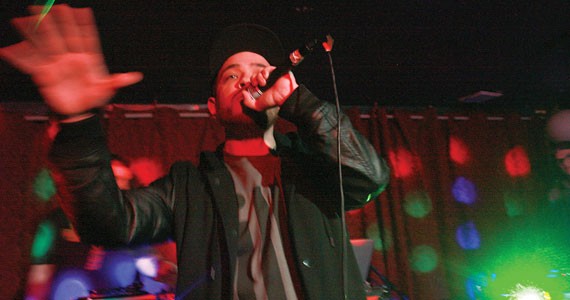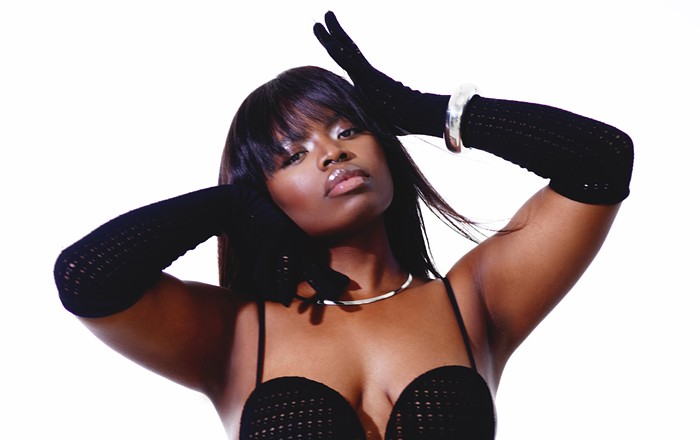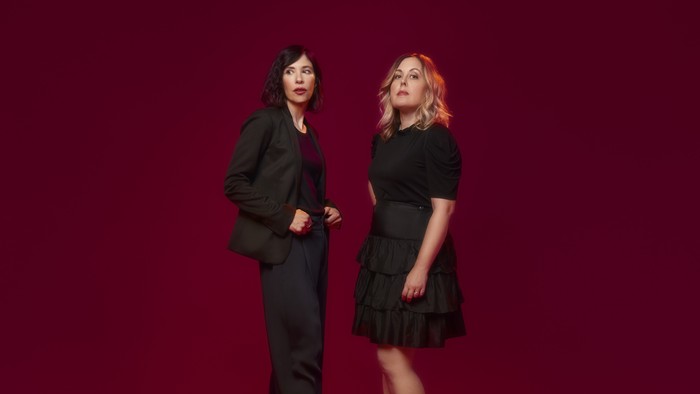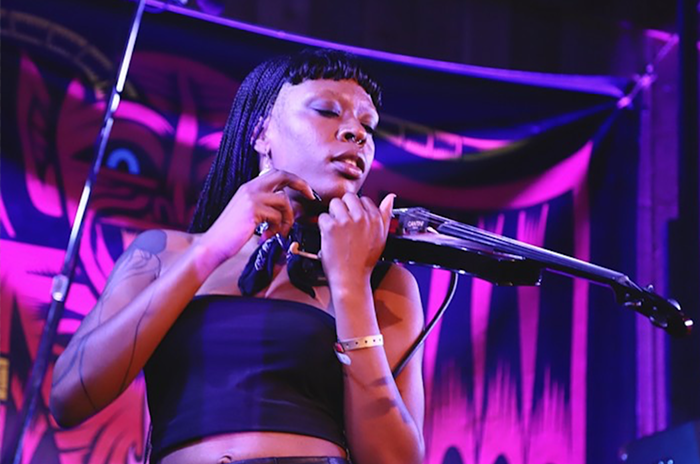RAPPER MIKEY VEGAZ was easy to spot when a couple of Portland cops showed up at the Blue Monk on SE Belmont late on Saturday, March 1. He was on stage, down in the bar's basement, more than halfway through his set.
Gang officers had noticed Vegaz (real name Eddie Bynum Jr.) on the bill earlier that day. They put a call over to the police bureau's bar-and-nightclub detail. And those officers, a fire inspector in tow, had come down to make sure Vegaz left.
"What is it you're looking to do?" Bryce Trost, the show's promoter, says he asked one of the cops. He says he got the following answer: "I want to get him and his affiliates out of here."
They got their wish. And then some.
The cops' visit, a display of might in and of itself, gave the fire inspector a chance to complain about overcrowding—touching off a slow-building show of force by cops that soured the night so badly the show was suspended.
The fallout—coming just months after a Vice article accused the city's police bureau of waging war on Portland's hiphop scene, and by proxy, the city's African American community—was felt immediately. Illmaculate, the last on the bill, refused to take the stage.
"I will not perform in this city as long as the blatant targeting of black culture and minorities congregating is acceptable common practice," the rapper tweeted that night.
Days later, the fallout was still being felt— even in city hall.
On Tuesday, March 4, just before Illmaculate (real name Gregory Poe) went face-to-face with a police spokesman on OPB's Think Out Loud, the city's Independent Police Review (IPR) Division announced a "review of the Portland Police Bureau's policies and procedures that relate to its interactions with hiphop music events and venues."
Mayor Charlie Hales' office followed with a statement of its own, as reported by the Skanner, saying this issue was already on Hales' radar and will remain there.
"Mayor Hales supports a review of police procedures in this area," his office said.
The show in the Blue Monk's basement started off calmly by all accounts. The place was packed and full of media. Luck-One (Hanif Collins), the second artist on the bill, was back for a show after moving to New York—and Vegaz, an up-and-coming act, was opening.
Trost said the crowd was enjoying itself. On OPB on Tuesday, Illmaculate spoke of the evening's "good vibes" and how it was "actually a very good night for Portland hiphop."
Mercury correspondent Ryan Feigh said he didn't even realize cops had shown up until Luck-One's set was under way. Tension was at a minimum. Feigh and others also said the basement didn't feel overly crowded or unsafe—until the cops showed up.
"I then noticed there were four armed police officers surrounding the bar, the merchandise table, and the entrance to the bottom of the stairs," Feigh wrote in an account first posted on Blogtown, "glaring at the crowd like statues with weapons."
Police reports released to media outlets on Monday, March 3, made it seem like cops had dropped by for a routine visit—and then called in gang officers once they found the place overcrowded, worried about the reaction if they shut it down or tried moving people out. In all, at least 14 cops were on scene.
But police spokesman Sergeant Pete Simpson, in an interview with the Mercury, clarified that wasn't quite the case: The first officers showed up because gang officers had called them.
And those gang officers had issued their "heads up" because of Vegaz—whom they later identified as a potential target of a December 2013 shooting outside a recording studio (Simpson says Vegaz was inside the studio when the shots were fired).
"When PPB hears of events that might attract a gang element," Simpson told the Mercury, "officers pay attention."
"I'm not a gang member," Vegaz told the Oregonian. "Do I have ties to gangs because I was born and raised in Northeast Portland? Are they saying because I'm black I have gang ties?"
Vegaz left as soon as his set was over; Trost refused to pull him out sooner. The cops stayed anyway.
Trost and Blue Monk owner Sheri Dietrich say officers stopped letting people back into the basement, citing capacity. (Though the basement venue was partially full, official capacity only allows for 85 people, Dietrich confirms.)
Simpson says cops never actually closed the bar, although they did think about it seriously. They called backup, he says, after some of the people outside confronted them. No doubt, many were angry. Jackets left by smokers had to be hunted down. Credit cards held for bar tabs had to be fetched.
"Overall I'm frustrated, but not surprised," Feigh wrote on Blogtown. "I've witnessed these tactics far too many times. The dissonance between the police department and a peaceful musical community is disheartening and depressing."
Dietrich understands that maybe the cops were worried Vegaz could have been targeted again. But she still wonders why cops didn't call her first. The show had been booked for weeks. Illmaculate, appearing along with Simpson on OPB, also agreed that a call—given how often cops appear unannounced at local hiphop shows—could have gone a long way.
"It would be a proactive step to actually building a relationship and working with community," Illmaculate said, "rather than alienating themselves from this community they say they want to serve."



















